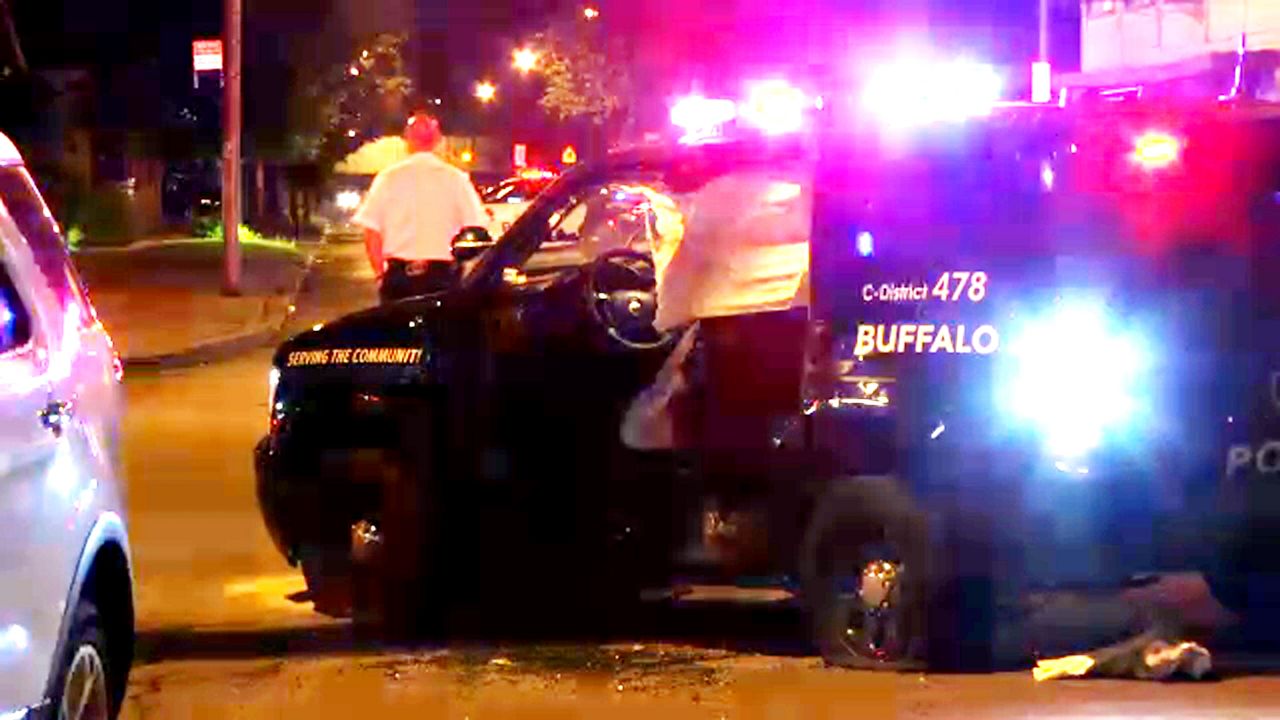George Floyd's death is leading to calls for how policing in America is conducted and how much oversight law enforcement needs. Chief among the debate is repealing a provision known as 50-A.
"People are fed up and upset and I think the majority of America is finally starting to see that there are some really serious systemic issues that are happening in police departments," said Sen. Jamaal Bailey, a Democrat who represents the Bronx.
Bailey is the main sponsor of a bill that would repeal 50-A, a decades-old provision that protects the secrecy of police disciplinary records. The hope for advocates is the heightened transparency will lead to better outcomes for African-American communities and communities of color.
"We should know as individuals who are being policed who are policing us and 50-A serves as a shield for those disciplinary records," Bailey said. 'I believe it is time for us to do something swiftly and concretely about 50-A."
Sources on Monday said lawmakers discussed a package of police reforms that include making it easier to access police disciplinary records. It's not yet clear if the final agreement between the state Senate and Assembly will be a full repeal of 50-A or a partial measure that could protect personla information of officers.
State lawmakers may also consider additional measures including releasing stats on the number of people issued tickets for violations and misdemeanors as well as end the practice of solitary confinement in prisons.
"Today the Senate and Assembly had productive majority conferences to discuss the issues occurring in our communities that have caused so much unrest over the last several days," Assembly Speaker Carl Heastie and Senate Majority Leader Andrea Stewart-Cousins said in a joint statement. "Members have bills on many topics related to these issues and we will be developing a legislative package based on the ideas put forward. We intend to act on them next week."
Gov. Andrew Cuomo has said he would sign a bill repealing the measure, but has insisted mayors can already do so now.
"I don't believe the law ever stopped a mayor from releasing them," Cuomo said Monday at his daily briefing where he backed a list of policing changes he framed as a national solution. "But politically they don't want to."
But police unions have raised concerns. New York State Troopers PBA President Thomas Mungeer says making those records public would potentially smear innocent officers who are going about their duty.
"What my fear is you open up a personnel jacket and you have 10 complaints and all those complaints might be unfounded," Mungeer said.
Republican State Senator Patrick Gallivan is also opposed to a broader ability to release the records, noting they can already be released through, say, court action. But he says there are other options.
"If we don't like the way police act, let's look at police training," said Gallivan, a former sheriff. "If we feel like police aren't held accountable enough, let's look at the disciplinary system and the level of accountability. But the records are the records."



